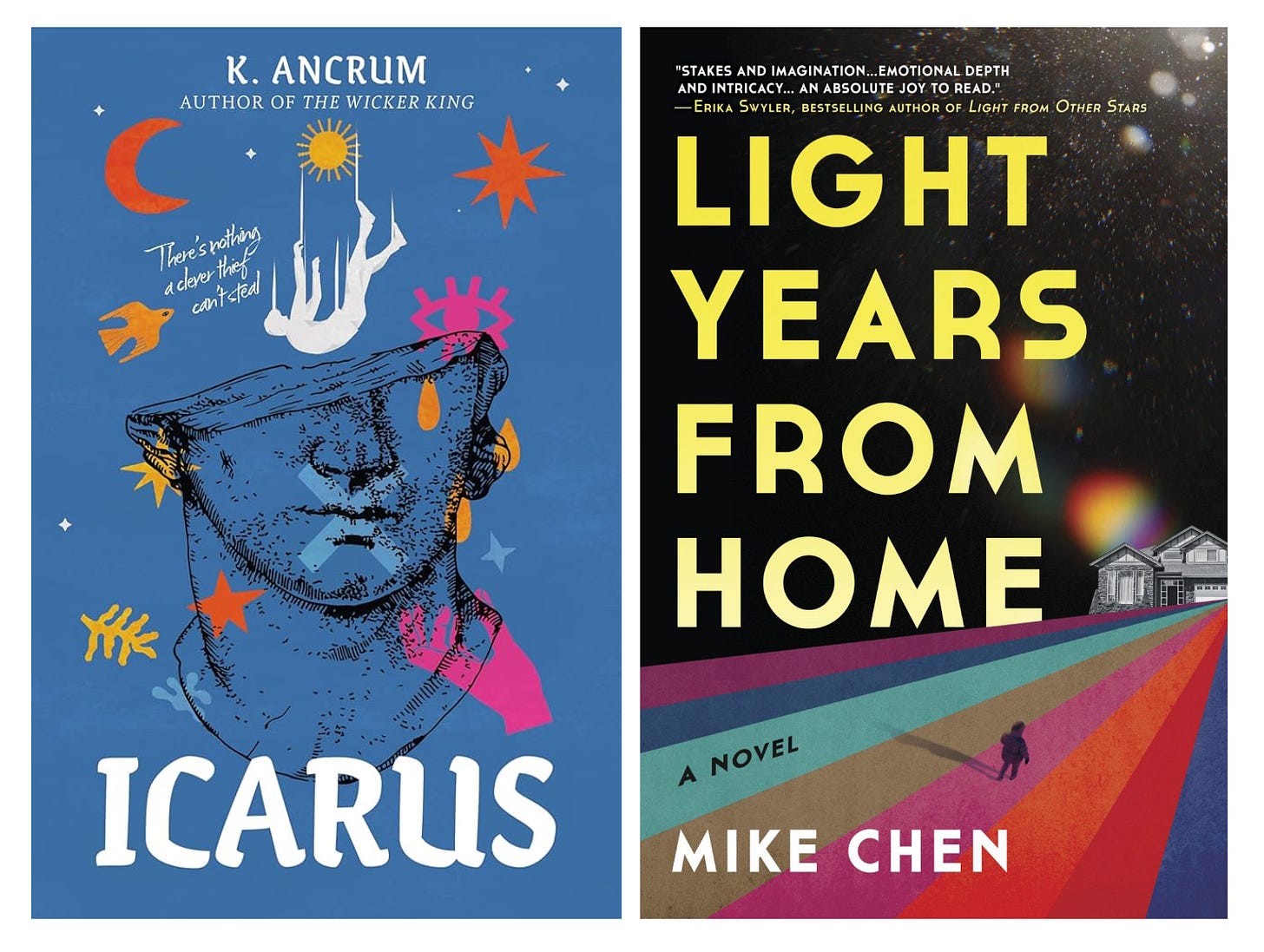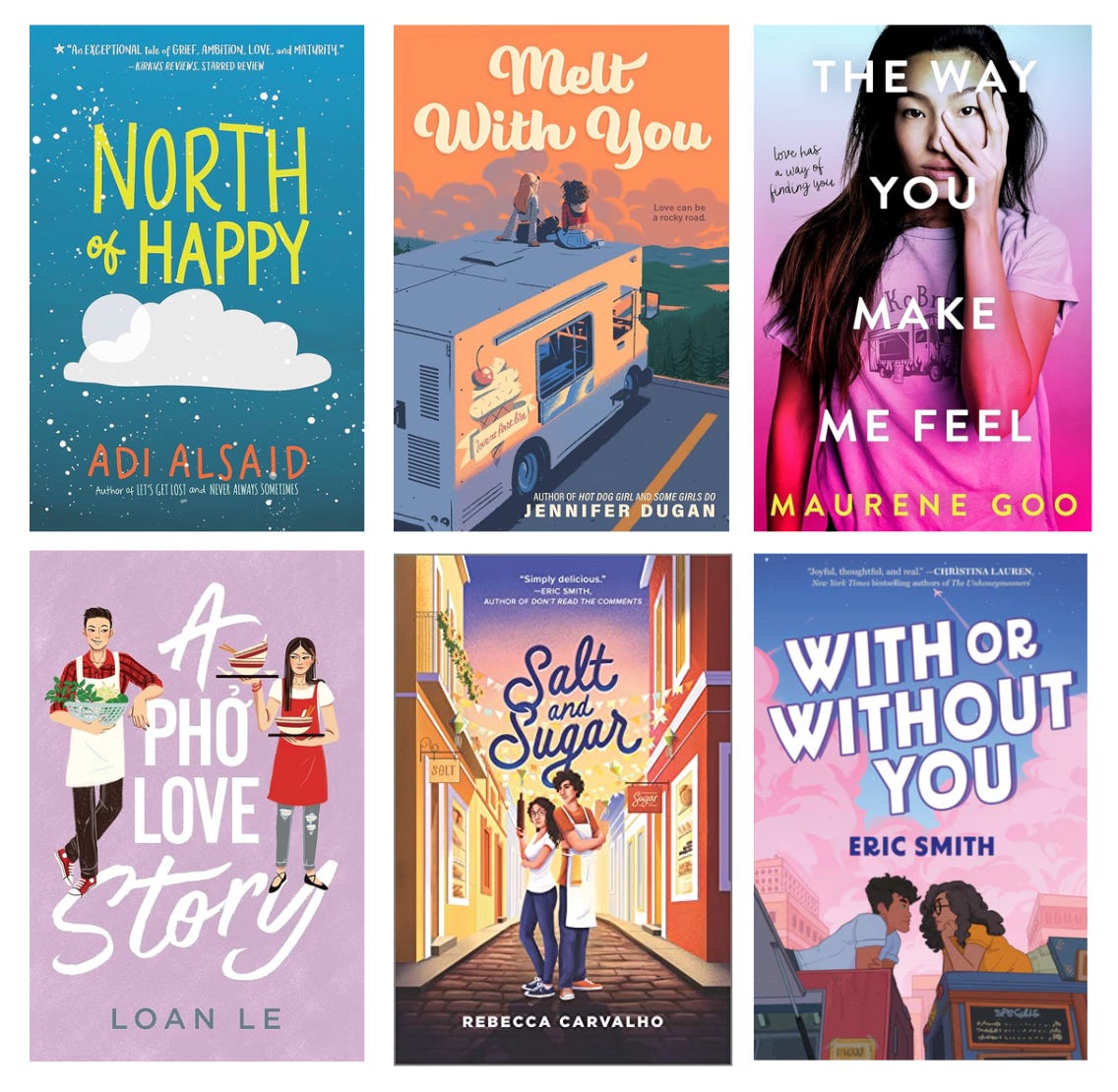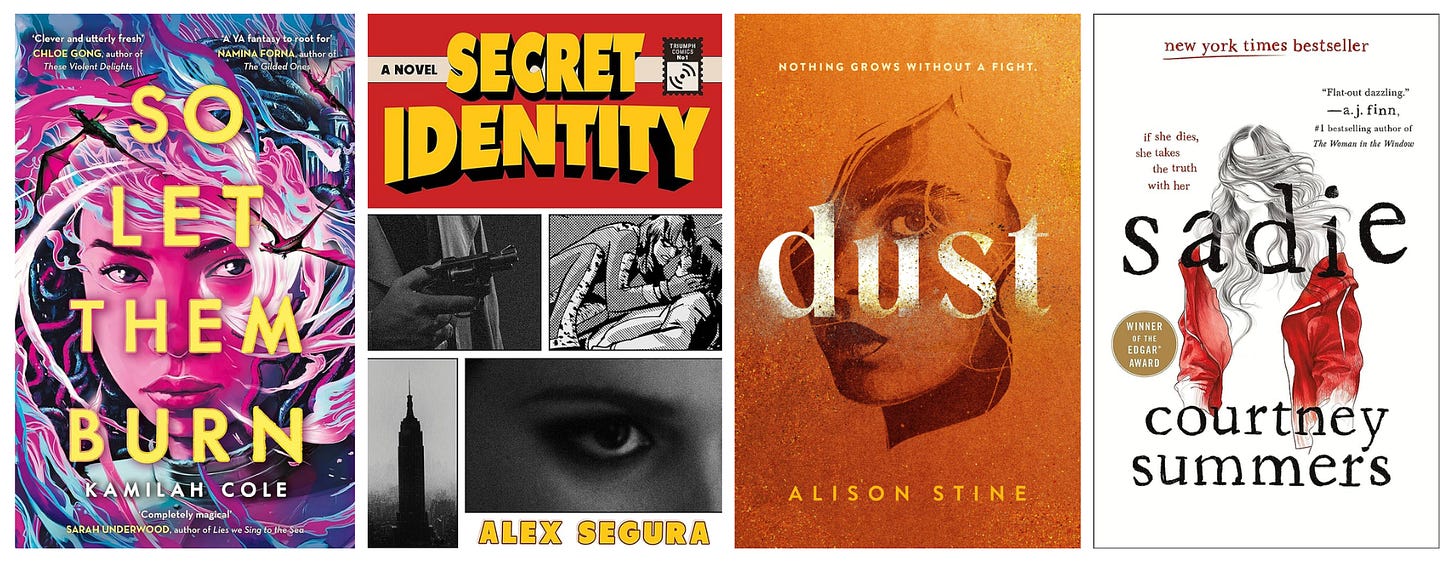What Does "High Concept" Even Mean?
Everyone is asking for it, but just what is it?

“This just doesn’t feel high concept enough for me,” is a refrain I know a lot of writers are wrestling with these days. We hear it from agents, from editors. And it doesn’t really matter what the category is, whether we’re talking about adult romantic comedies or Middle Grade contemporary, it’s a phrase we see tossed around quite a bit.
But what are agents and editors (and readers!) even talking about when they say that?
For a story to be labeled “high concept”, it needs to do something that makes it stand out in a huge way from other books in the same space. Maybe that means it does a bit of genre-blending, throwing a bit of magic or sci-fi into what feels like a conventional setting and plot. Perhaps it does a little experimenting with prose and form, giving the reader a unique experience on the page. Or hey, the story could take a familiar trope and gives it a major twist we haven’t seen before.
I tend to be pretty drawn to high-concept novels in my agent life.
If you look at K. Ancrum’s critically acclaimed Icarus (five starred reviews!), we see writing that exists in the thin line between prose and verse, something she’s an expert at (please go look up the brilliant novels The Wicker King and The Weight of Stars for more examples).
Or if you peek at Mike Chen’s extensive catalog of upmarket sci-fi. Here and Now and Then is a time-travel novel that’s really about trying to be a good father. Light Years From Home is an alien abduction story that’s less about the spaceships and more about how it tears a family apart. He blends genre and quiet literary stories for something unexpected.
“High concept” isn’t really a new thing, though it might feel that way. Just a quick Google search will show you an article back in 2018 over on Writer’s Digest. In fact, there’s a great note in there about how being high-concept isn’t required to be published. And that’s true. I love my quiet stories.
But it often comes up when a certain market in publishing has become oversaturated.
Meaning, publishers have bought too much of a specific thing, and now in order to get through, it needs to stand out in a spectacular way. It’s something we’re seeing said quiet often in the kid-lit market and in the rom-com space.
So how do you make yourself be high concept, and stand out?
Honestly? You read.
When I was working on With or Without You, I tried to make it high concept. There were already plenty of brilliant YA novels about teens, food, and food trucks. If you haven’t read Jennifer Dugan’s Melt With You, Adi Alsaid’s North of Happy, or Maureen Goo’s The Way You Make Me Feel, you are absolutely missing out. Also, you can follow Maureen on here at
.I’d read all of them, and when I was fussing over the concept of warring cheesesteak trucks, that plot point wasn’t enough. There were already a bundle of restaurant rivalry YA novels (Pho Love Story by Loan Le is a huge favorite, as is Salt and Sugar by Rebecca Carvalho). What was going to set it apart from my brilliant friends and colleagues?
The plot point I landed on? A reality television show shining a spotlight on the faux-rivalry, and the trope twist of “fake hating” instead of “fake dating.” Because they were, in fact, already dating.
I like to think it worked. Thank you, Junior Library Guild.
Sprinkling in that extra plot point, and that trope twist, is what pushed it to be high concept. The idea of high concept isn’t just vibes and genre, but also something directly influenced by the plot. There’s a bit about that in the Writer’s Digest piece, actually.
So yes, I told you to read to navigate the idea of making your book high concept. You have to know what’s out there, in order to set it apart, right? But what about some authors who write high concept books, as examples?
Here are a few recent favorites, who you can follow along on here.
Kamilah Cole: Her debut, So Let Them Burn, absolutely falls into the high concept space when talking about YA fantasy. It’s not just about a chosen one… it’s about a chosen one who already did her job, and is navigating life years later. And when bad things start to happen… will she have the strength to fight again? She experiments with those tropes and the result was just brilliant. Subscribe to her newsletter, while you’re here,
.Alex Segura: A longtime favorite of mine, not just as a writer but also as a publishing industry person, I cannot recommend Secret Identity enough. A genre-blending category-defying mystery (okay yes, I get it goes in mystery, but still!) historical that uses the golden age of comics as a way to navigate a complicated world, it’s a masterpiece of high concept writing. And hey, you can subscribe to him on here too,
.Alison Stine: Like K. Ancrum and Mike Chen, I’m lucky enough to represent Alison, and her works, like Road Out of Winter, Trashlands, and the forthcoming Dust, are absolutely high concept. At the core, they tell stories about complicated families. But all around that emotional center, are elements of speculative nightmares about climate change. Literary eco-fiction. You can subscribe to Alison here,
.Courtney Summers: Have you read Sadie? If not, why not? Talk about high concept, the blending of the podcast and the prose is just so brilliant. And even looking at Summers’ earlier catalogue, like This is Not a Test, we see those high concept vibes. It’s the best YA zombie book I’ve ever read, and it’s a zombie story that’s not even really about zombies. Just brilliant. Courtney is also on Substack, you can follow her at
.Alright, that’s all I got this issue, friends.
In August I’m hosting a query letter workshop as a benefit for my friends at Blue Stoop, with all profits going towards their wonderful non-profit. You can learn more and register here. Use the code “ERIC10” for 10% off the workshop, just for you.
Preorder Jill Baguchinsky’s So Witches We Became, which comes out in July, if this was helpful!
My dear friend Preeti Chhibber announced the preorder campaign for her debut novel. Highly recommend putting it on your must-read list this year.
And good pal Ashley Poston (speaking of high concept authors!) has a new book out today! You can also follow her on Subtack at
. Don’t miss out on A Novel Love Story.Go write good things.
Eric





Thanks for this explanation! When querying, should a writer describe their manuscript as high concept if they believe it is? Or is this something you don’t say about your own work and rather an agent would recognize it is (or isn’t) based on the query/pages?
This was super helpful for somebody on the verge of querying, trying to define my work. Also thanks for all the 'stack recommendations. Just subbed to all those incredible authors!